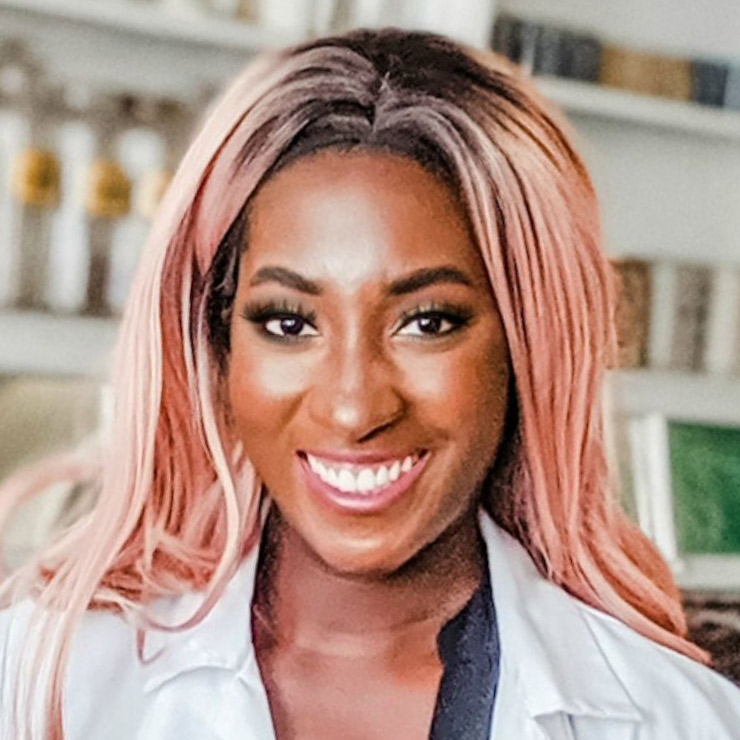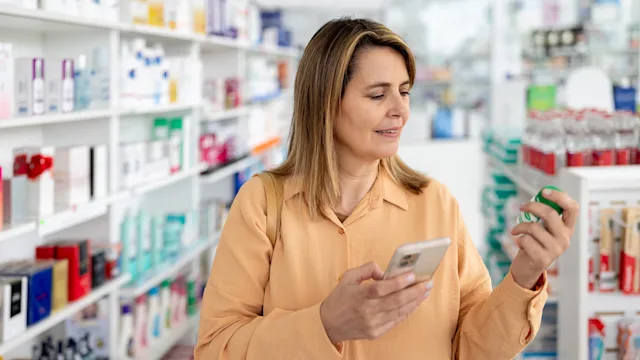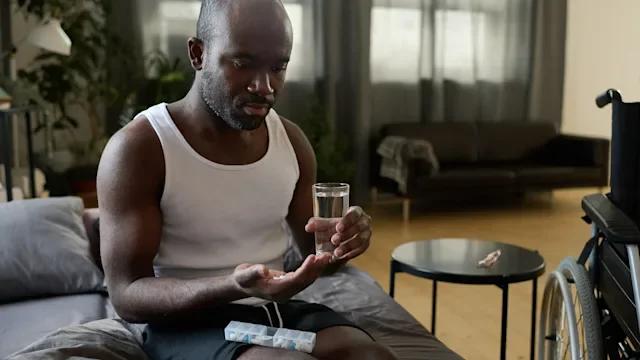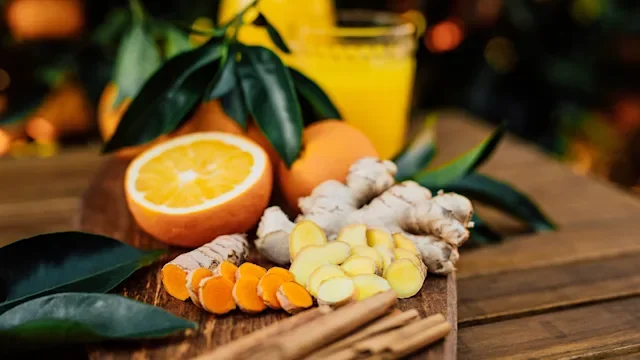Key takeaways:
Ginkgo biloba is a popular over-the-counter (OTC) herbal supplement that has several drug interactions to be aware of. It’s best to avoid ginkgo biloba if you’re taking warfarin, anti-seizure medications, or nifedipine. Ginkgo can also make omeprazole (Prilosec) and esomeprazole (Nexium) less effective.
Other ginkgo biloba interactions include oral diabetes medications, alprazolam, and statins. It may also increase the risk of bleeding if you take it with blood thinners other than warfarin and some antidepressants.
It’s best to review your medication list with your pharmacist or medical team before you start taking ginkgo biloba. They can determine if there are any drug interactions you should be aware of.
Ginkgo biloba is an over-the-counter (OTC) herbal supplement with a rich history in traditional Chinese medicine. Today, many people take ginkgo biloba to help with memory, anxiety, and other health conditions. But it’s easy to forget that just because something’s “natural” doesn’t always mean it’s safe. Especially if you’re taking other medications or supplements.
Ginkgo biloba doses of up to 240 mg per day are considered safe, with a lower risk of interactions than higher doses. But interactions are still possible, so it’s good to be aware of them before you take it. Ahead, we’ll take an in-depth look at seven possible ginkgo biloba interactions. Keep in mind that this isn’t a complete list. It’s best to check in with your healthcare team to make sure ginkgo biloba is a safe option for you before taking it.
1. Warfarin and other blood thinners
Ginkgo biloba may increase your risk of bleeding if you take it with warfarin (Coumadin, Jantoven), a common prescription blood thinner. It’s best to avoid ginkgo biloba if you’re taking warfarin due to this interaction.
Search and compare options
It’s not clear whether ginkgo biloba interacts with other medications that can increase the risk of bleeding. This includes:
Prescription blood thinners, such as apixaban (Eliquis) and clopidogrel (Plavix).
Nonsteroidal anti-inflammatory drugs (NSAIDs), such as ibuprofen (Advil, Motrin)
Herbal supplements that have blood thinning effects, such as garlic and ginseng
Selective serotonin reuptake inhibitors (SSRIs), such as fluoxetine (Prozac) and sertraline (Zoloft)
Serotonin and norepinephrine reuptake inhibitors (SNRIs), such as duloxetine (Cymbalta) and venlafaxine (Effexor)
A large review showed no increased risk of bleeding from taking ginkgo biloba. But there have been case reports and small studies that show otherwise. Since we don’t have solid evidence either way, it’s best to err on the side of caution. You should avoid taking ginkgo biloba with these medications and supplements without a healthcare professional’s OK.
If you take a medication that can increase your risk of bleeding, check with your healthcare team before you start taking ginkgo biloba. Even if they OK the combination, keep an eye out for any signs and symptoms of bleeding. This may be mild bleeding, such as when brushing your teeth or blowing your nose. But it can also be severe, with symptoms such as:
Blood in your urine
Severe vomiting or vomiting blood
Bleeding that doesn’t stop or bruising that doesn’t heal
Keep in mind: If you’re having a surgical procedure, it’s best to stop taking ginkgo biloba at least 36 hours (about a day and a half) beforehand. This lowers your risk of excess bleeding during surgery.
2. Prilosec and Nexium
Ginkgo biloba can lower the levels of omeprazole (Prilosec) and esomeprazole (Nexium) in the body if they’re taken together. This can make these acid-reducers less effective, which can raise your risk for heartburn and stomach ulcers.
Read more like this
Explore these related articles, suggested for readers like you.
This interaction is more likely with ginkgo biloba doses over 240 mg daily. But for best results, it’s best to avoid taking any dose of ginkgo biloba with these medications. If you’re already taking ginkgo biloba and need a medication for heartburn or acid reflux, talk to your pharmacist or prescriber about a safer option.
3. Oral diabetes medications
Ginkgo biloba may not be the best choice if you’re taking oral diabetes medications. One study found that ginkgo biloba may raise blood glucose (sugar) levels if it’s taken along with oral diabetes medications. It’s not clear why this happens, but it may have to do with ginkgo’s effect on the liver, which can lower insulin levels.
That being said, other studies show that ginkgo biloba can help improve blood glucose levels if taken with metformin. And ginkgo biloba may also help prevent complications from diabetes, such as kidney damage (nephropathy).
If you take medication to help manage your blood glucose levels, talk to your healthcare team before starting ginkgo biloba. They may suggest more frequent blood glucose checks to make sure your levels stay where they should be. You should also keep an eye out for an signs of high blood glucose, such as:
Peeing more often
Feeling tired
Blurry vision
Increased thirst
If you experience any of these symptoms, contact a healthcare professional. They can help determine if your blood glucose is higher than it should be.
4. Nifedipine
Nifedipine (Procardia) is a calcium-channel blocker that treats certain heart conditions. Limited data suggests that ginkgo biloba can raise nifedipine levels in the body by as much as double the normal amount. This resulted in long-lasting, severe side effects including headaches, dizziness, and hot flashes. The interaction didn’t occur for everyone in the study, so it’s possible that genetic differences may play a role.
If you’re taking nifedipine, it’s best to avoid taking ginkgo biloba unless your prescriber OKs it. The risk outweighs the potential benefit in this case.
5. Alprazolam (Xanax)
Alprazolam (Xanax) is often prescribed to help manage anxiety and panic attacks. One study showed that ginkgo biloba may lower alprazolam levels in the body if they’re taken together. This could make alprazolam less effective
It’s not entirely clear why this interaction happens. And it doesn’t seem to occur when ginkgo biloba is combined with other commonly prescribed benzodiazepines, such as diazepam (Valium).
Talk to your prescriber before taking ginkgo biloba and alprazolam together. They may OK the combination and have you let them know if alprazolam seems less effective than usual. Or they may switch you to a different medication that’s safer to combine with ginkgo biloba. Keep in mind that it can be dangerous to stop taking alprazolam abruptly, so don’t adjust your alprazolam dosage or try a different medication on your own.
6. Statins
Statins are a group of medications that help lower high cholesterol levels. The liver breaks down most statins. Ginkgo biloba may affect how the liver breaks down these medications.
As with other ginkgo biloba interactions, the evidence supporting the interaction between statins and ginkgo biloba is limited and may differ between statins. For instance, one study showed that ginkgo biloba may lower atorvastatin (Lipitor) levels. But the opposite may be true for simvastatin (Zocor), as ginkgo biloba can raise its levels in the body.
The risk for interactions between ginkgo biloba and statins seems higher if you take more ginkgo biloba than recommended (doses over 240 mg per day). But if your prescriber hasn’t given you the OK, it’s best to avoid this combination.
7. Anti-seizure medications
Ginkgo biloba may put you at risk for seizures in two ways:
It may lower your seizure threshold (make seizures more likely).
It may make certain seizure medications less effective.
The increased risk of seizures is largely due to ginkgotoxin, a compound that’s mainly found in ginkgo biloba seeds. Most standardized ginkgo biloba extracts shouldn’t contain ginkgotoxin, but it’s still a common contaminant in many OTC ginkgo biloba supplements.
It’s best to avoid ginkgo biloba if you have a history of seizures, take anti-seizure medication, or take other medications that can lower the seizure threshold. If you experience a seizure while taking ginkgo biloba, seek emergency care. And bring your supplement bottle with you for testing, if possible.
When should you talk to a healthcare professional about ginkgo biloba interactions?
The best time to discuss potential interactions with a healthcare professional is before you start taking ginkgo biloba. Give your pharmacist or prescriber your current medication list, and ask them if ginkgo biloba is a safe option for you.
If your care team OKs ginkgo biloba, be sure to let them know if you notice any new side effects or changes in how you’re feeling while you’re taking it. They can check to see if an interaction could be the cause and advise you on managing your symptoms.
At any point, if you develop symptoms that feel severe or life-threatening, seek emergency care or call 911.
The bottom line
Ginkgo biloba is a common over-the-counter (OTC) herbal supplement. But it has several interactions to be aware of before you take it. Avoid taking ginkgo biloba with warfarin, anti-seizure medications, and omeprazole (Prilosec) or esomeprazole (Nexium). It’s also best to avoid ginkgo biloba if you’re taking nifedipine (Procardia).
If you take blood thinners other than warfarin and certain antidepressants, it’s best to get your prescribers OK before adding ginkgo biloba to your treatment regimen. You should also talk to your healthcare team before taking ginkgo biloba with oral diabetes medications, alprazolam (Xanax), and statins.

Why trust our experts?



References
Aziz, T. A., et al. (2018). The efficacy and safety of Ginkgo biloba extract as an adjuvant in type 2 diabetes mellitus patients ineffectively managed with metformin: a double-blind, randomized, placebo-controlled trial. Drug Design, Development, and Therapy.
Biernacka, P., et al. (2023). The potential of Ginkgo biloba as a source of biologically active compounds—A review of the recent literature and patents. Molecules.
Hatfield, J., et al. (2022). Dietary supplements and bleeding. Baylor University Medical Center Proceedings.
Kudolo, G. B. (2013). The effect of 3-month ingestion of Ginkgo biloba extract (EGb 761) on pancreatic β-cell function in response to glucose loading in individuals with non-insulin-dependent diabetes mellitus. The Journal of Clinical Pharmacology.
Le, T. T., et al. (2022). Herb-drug interactions in neuropsychiatric pharmacotherapy – A review of clinically relevant findings. Current Neuropharmacology.
Markowitz, J. S., et al. (2003). Multiple-dose administration of Ginkgo biloba did not affect cytochrome P-450 2D6 or 3A4 activity in normal volunteers. Journal of Clinical Psychopharmacology.
National Center for Complementary and Integrative Health. (2020). Ginkgo. National Institutes of Health.
Nguyen, T., et al. (2023). Ginkgo biloba. StatPearls.
Rombolà, L., et al. (2020). Pharmacokinetic interactions between herbal medicines and drugs: Their mechanisms and clinical relevance. Life.
Stouras, I., et al. (2022). The challenge and importance of integrating drug–nutrient–genome interactions in personalized cardiovascular healthcare. Journal of Personalized Medicine.
Unger, M. (2013). Pharmacokinetic drug interactions involving Ginkgo biloba. Drug Metabolism Reviews.
Wanwimolruk, S., et al. (2014). Cytochrome P450 enzyme mediated herbal drug interactions (Part 1). EXCLI Journal.
Woroń, J., et al. (2018). Unwanted effects of psychotropic drug interactions with medicinal products and diet supplements containing plant extracts. Psychiatria Polska.
Yoshioka, M., et al. (2004). Studies on interactions between functional foods or dietary supplements and medicines. IV. Effects of Ginkgo biloba leaf extract on the pharmacokinetics and pharmacodynamics of nifedipine in healthy volunteers. Biological and Pharmaceutical Bulletin.
Yin, O., et al. (2004). Pharmacogenetics and herb–drug interactions: Experience with Ginkgo biloba and omeprazole. Pharmacogenetics and Genomics.
Zhang, L. (2013). Ginkgo biloba extract for patients with early diabetic nephropathy: A systematic review. Evidence Based Complementary and Alternative Medicine.
Zou, H., et al. (2023). Effects and safety of Ginkgo biloba on blood metabolism in type 2 diabetes mellitus: A systematic review and meta-analysis. Frontiers in Endocrinology.


















